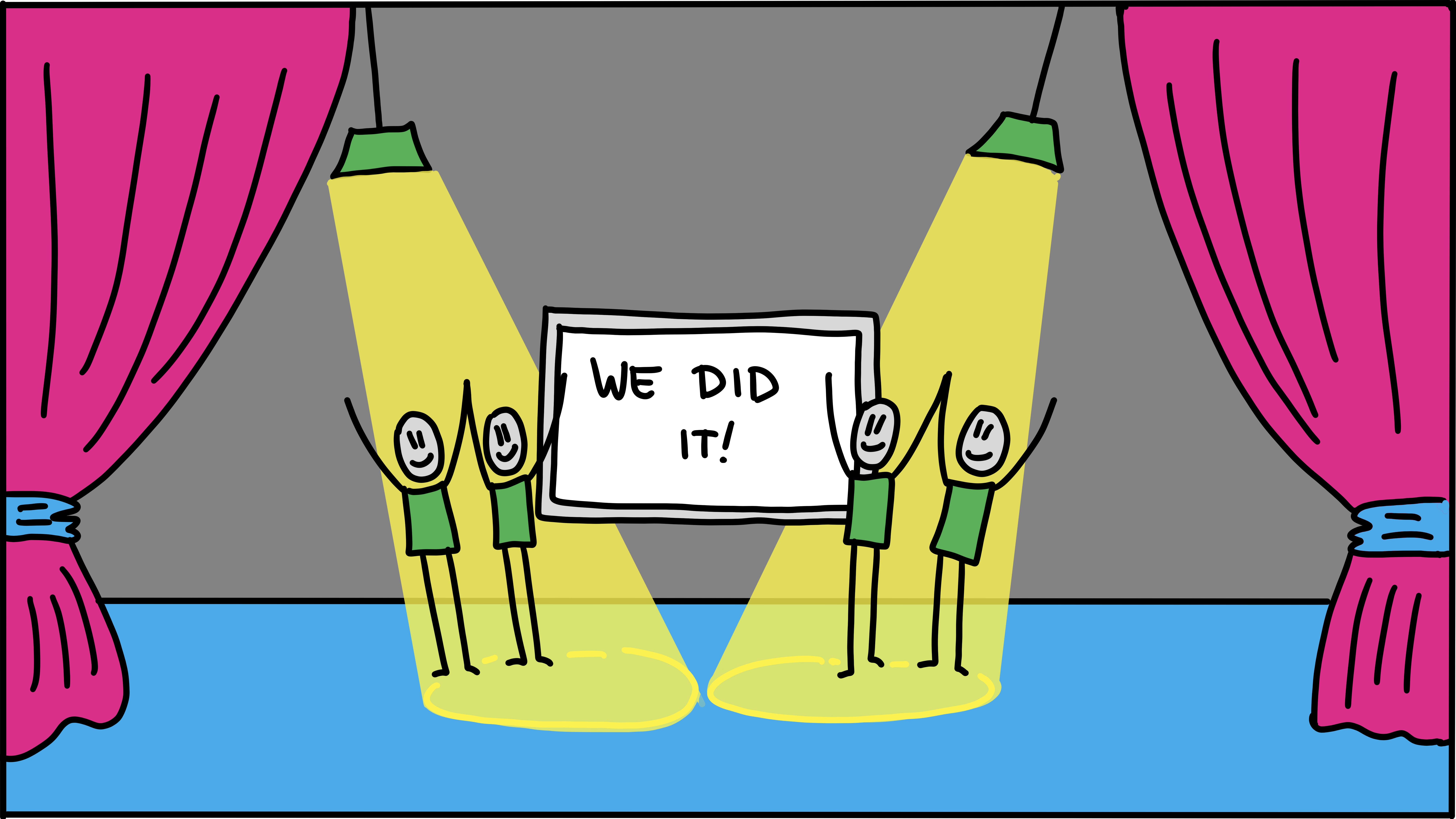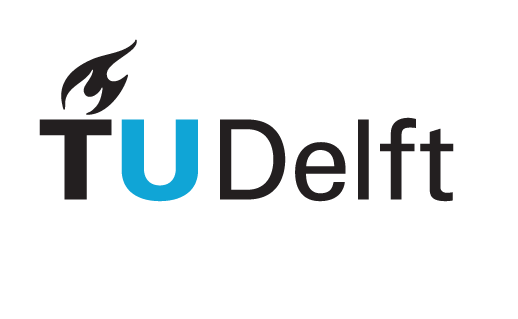
Week 1.10: Taking the Stage#
Every project has an endpoint, whether you’re ready or not. A “reveal” moment when researchers share what they learned and discuss it with others. This should be fun and informative. This week, you will use the “project presenting” skills you acquired in the previous week(s). Mastering the skills of presenting are another key scientist skill. This week you’ll also get a workshop on presenting to help you further.
This week, you will present a poster. You will discuss its content with your peers and and with a more general audience of scientists to experience and answer questions from these different audiences.
The week also includes an oral exam with your supervisor (see sample questions below) and a final reflection symposium (see discussion questions below).
It’s time to show off what you’ve done and reflect on what did well and wish you’d done differently.
Scheduled elements this week:
Tuesday:
Thursday:
Practice symposium for the groups
Oral exam - does not have to be strictly on this day, but has to be planned this week
Final Symposium
Friday:
Final reflection symposium
Wokshop: Presenting - Improv, Handling Questions and Stage Fright#
Delivery, or the actio as ancient Roman and Greek orators put it, is the final step of giving a presentation. Once the curtains have opened and you meet your audience, you want to keep them engaged to get your message and get the narrative across. This means that you need to effectively use your body posture, gestures, voice and facial expression to deliver your talk. This workshop focuses on the effective delivery of a presentation. We will practice using body language and voice with improvisation exercises. Students gain insight into their own ‘actio’ strengths and pitfalls. Special attention will be given to nerves: what can you do if they get the better of you? Furthermore, we will practice handling questions – a part of presenting that can only be prepared to a certain extent and that often involves some improvisation. We will touch upon guidelines for structuring answers and dealing with challenging audiences and questions.
Key Concepts#
Delivery of a presentation: body language, voice and movement
Handling (challenging) questions
Coping with nerves
Learning Goals#
Students know about advice for effectively delivering a presentation
Students practice with engaging delivery skills
Students gain insight into their personal presentation delivery style, strengths and points for improvement
Students apply guidelines for handing (challenging) questions
Students know guidelines for dealing with nerves prior or during a presentation
Group Activity of the Week#
Presenting a poster twice in two diffferent contexts.
Sample Oral Exam Questions#
What are you proud of in collaborating with team mates?
What were some of the cultural differences within your team, what effect do you think they had on your work?
What was your biggest challenge in the process of this project, what did you learn from it?
What thing can I (supervisor) give you feedback on?
How did you go about learning about the content of your project?
Where do you think this project could go?
What interests you most about this project?
What biases did you encounter during this project and how do you think they affected your project?
What questions do you have? (Students should be prepared to ask something)
Discussion Questions#
What did you really enjoy?
What did you find challenging?
What do you think should be changed for next year?
What feedback would you give the minor teaching team?
What are you excited about for next quarter?
Weekly Submitted Assignments#
Group#
Submit your final grant proposal.
Individual#
What would you advise to the minor team to keep, discard and add for next year? What will you keep, discard and build on from what you learned during the first half of the minor?
